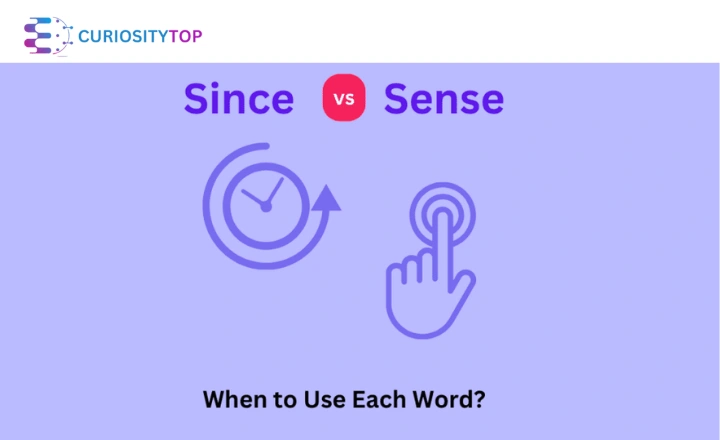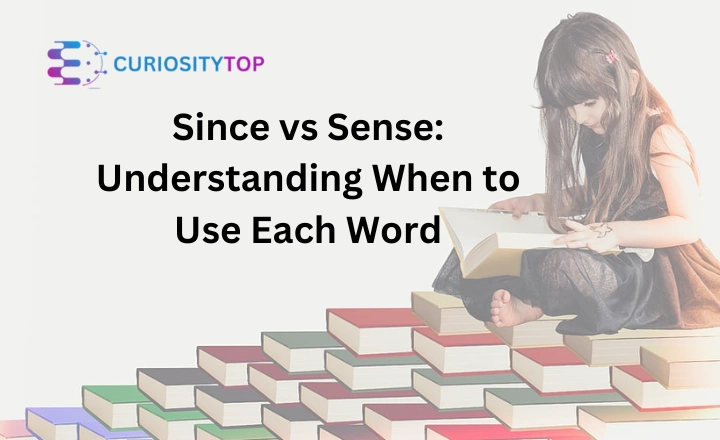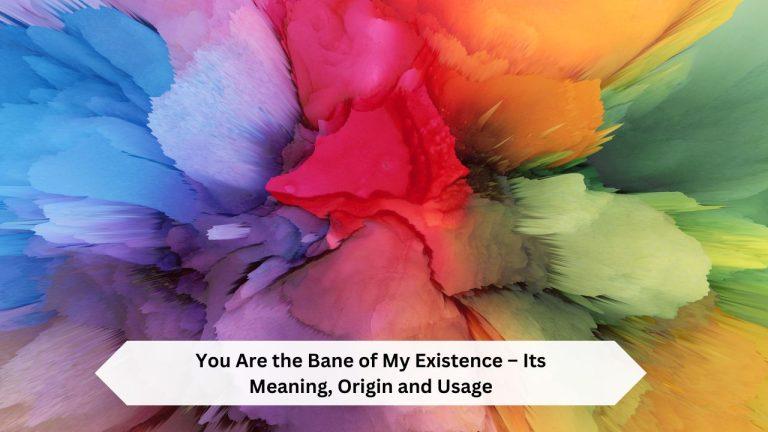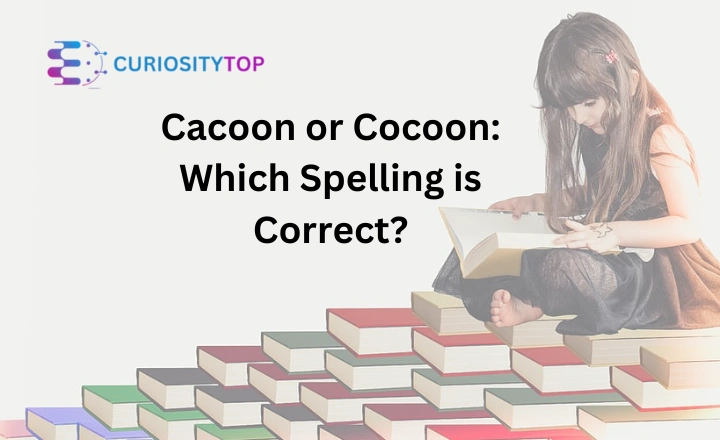Since vs Sense: Understanding When to Use Each Word
Word choices shape how we communicate. The difference between “Since vs Sense” often confuses writers. These similar-sounding words serve entirely different roles in our language. Your writing becomes more assertive and clearer when you know how to use them correctly. That makes sense or since you’re reading this article, let’s master these commonly confused words together.
Defining “Since vs Sense”
Since
The word “since” helps us talk about time and reasons. Writing about time marks a starting point that continues to the present moment. As a word that shows cause and effect, it works like “because.” It Makes since or sense choosing the right word depends on understanding these essential functions.
As a conjunction:
Time moves forward, and “since” helps us track it. When someone says, “I haven’t eaten since breakfast,” they’re connecting a past moment to now. The word also introduces reasons: “Since the weather is nice, we should go for a walk.” Here, it explains why an action should happen.
As a preposition:
“Since” also works as a preposition when talking about periods. Sentences like “He’s lived here since 2010” mark an ongoing situation’s exact starting point. This usage helps readers understand how long something has been happening.
As an adverb:
Sometimes, “since” stands alone as an adverb, meaning “from then until now.” For example, “She moved away years ago and hasn’t visited since.” This shows how time continues to flow from a past event.
Sense
The word “sense” connects to understanding and feeling. It plays different roles in language, helping us describe physical and mental experiences. It Makes sense or since you’re learning about this word, let’s look at its main uses.
As a noun:
Our five senses – sight, hearing, smell, taste, and touch – help us understand the world. Beyond these physical senses, we also talk about other kinds of understanding. Someone might have “a sense of humor” or “common sense.” The word also describes when something has meaning: “This explanation makes since or makes sense.”
As a verb:
When used as an action word, “sense” means to detect or understand something. You might “sense danger” or “sense that someone is upset.” This usage connects to both physical feelings and emotional awareness.
Time Travel or Inner Compass?
Think of “since” as your time machine. It takes you back to when something started: “I’ve been studying since or sense last month.” It also explains why: “Since you’re here, let’s have lunch.” The word guides readers through time and logic.
“Sense” works more like an inner compass. It points to understanding: “This story makes sense or since.” It helps us discuss feelings and awareness: “I could sense the excitement in the room.” While “since” deals with time and reason, “sense” helps us describe understanding and feelings.
Here are some more interesting posts for you.
Complement or Compliment: What’s the Difference?
Coach’s or Coaches’ or Coaches?
“Since” vs “Sense”
These words might sound alike, but they serve different purposes in writing. “Since” always connects to time or reason. “Sense” relates to understanding or feeling. Learning when to use each one improves your writing accuracy.
“Since” as a Time Traveler (or Reason Giver):
Think about “since” as your guide through time. It shows readers when things began: “We’ve been friends since kindergarten.” It also explains why things happen: “Since it’s cold, wear a jacket.” The word creates clear connections between events or ideas.
“Sense” as Your Internal Compass:
“Sense” helps us talk about understanding and perception. Whether describing physical senses or making meaning of situations, this word focuses on awareness. When something “makes sense,” we understand it clearly. When we “sense something,” we’re becoming aware of it.
| Feature | Since | Sense |
|---|---|---|
| Part of Speech | Preposition, Conjunction, Adverb | Noun, Verb |
| Meaning | Time (starting point) or Reason/Cause | Understanding, Perception, Feeling, Meaning |
| Function | Marks a starting point in the past, introduces a reason | Relates to senses (sight, smell, taste, touch, hearing), feelings, intuition, or meaning of words/phrases |
| Usage | Used to indicate time or causation | Used to describe perception, feeling, or understanding |
Putting it into Practice: Makes Sense or Since?

Getting a handle on “makes since or makes sense” doesn’t have to be complicated. The phrase “makes sense” appears in everyday conversations when something is logical or easy to understand. Think about how you use it – when your friend explains something clearly, you might say, “That makes sense or since.”
The simple rule is this: “makes sense” is a complete phrase meaning something is understandable. You’ll never need to write “makes since” because it’s incorrect. For instance, when your teacher breaks down a tough math problem step by step, you might say, “Now the solution makes sense or since.”
This distinction becomes even more important in professional settings. Your colleagues expect clear communication, so using these phrases correctly shows attention to detail. When writing emails or reports, stick with “makes sense” when confirming understanding.
Examples in Context
Since (Time and Reason)
Time markers help us tell better stories. “Since” often marks the beginning of events. Picture this: Someone says, “I’ve loved baseball since I was five.” Here, “since” points to when their passion began.
“Since” also introduces reasons for actions or feelings. Your friend might say, “Since you helped me move, dinner’s on me tonight.” This use of “since” explains why they treat you to dinner.
More examples show this pattern:
- The garden has bloomed beautifully since spring arrived
- She’s been happier since changing jobs
- Since the renovation, the house feels more spacious
Sense (Understandings and Feelings)
Our senses help us understand the world around us. The word “sense” connects to understanding, feeling, and meaning. When something clicks in your mind, you might say it “makes since or sense.”
Consider these everyday situations:
- The directions to the new restaurant made perfect sense
- People often develop a sense of belonging in their community
- My grandmother has a great sense of humor
- This business plan doesn’t make any sense to me
Words You Can Use in Place of “Since” and “Sense”
Since
When indicating time:
Time words help us be specific about when things happen. Instead of “since,” try these options:
- From (Starting point: “I’ve lived here from 2010”)
- After (Following events: “Everything changed after the storm”)
- Following (Sequential events: “Following graduation, I moved abroad”)
When indicating reason:
Different words can show why things happen. Replace “since” with:
- Because (Direct cause: “Because it rained, we stayed inside”)
- As (Known reason: “As you’re here, let’s talk”)
- Due to (Formal reason: “The delay was due to traffic”)
Sense
When referring to perception or feeling:
Our feelings and perceptions need different words sometimes:
- Sensation (Physical feeling: “A tingling sensation in my arm”)
- Perception (Understanding: “My perception changed after traveling”)
- Awareness (Knowledge: “An awareness of others’ needs”)
- Intuition (Gut feeling: “My intuition warned me”)
When referring to meaning or understanding:
Understanding comes in many forms:
- Meaning (Definition: “The meaning became clear”)
- Significance (Importance: “The significance of family traditions”)
- Understanding (Comprehension: “A deep understanding of music”)
- Interpretation (Analysis: “Her interpretation of the painting”)
A Final Look
Mastering “since” and “sense” opens doors to better communication. “Since” helps us discuss time and reasons, while “sense” connects to our understanding and feelings. When you write or speak, remember that “makes sense” is always right – never “makes since.” Keep these differences in mind, and your message will always come through clearly.
Remember, good writing builds bridges between people. Using the right words helps others understand your message perfectly. Now that you know the difference between these familiar words, you can write more confidently and clearly.







